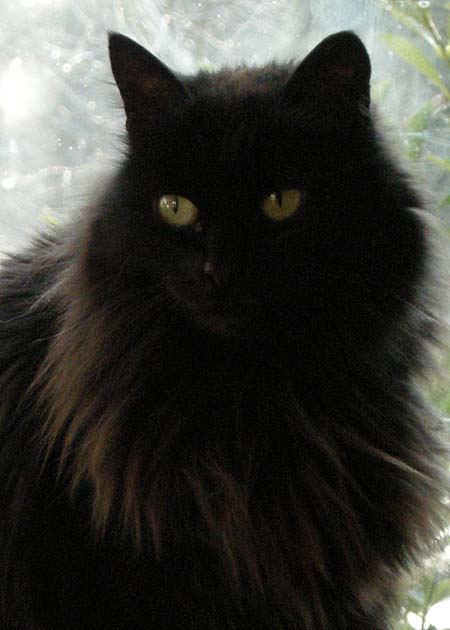
Muska is a Russian cat to the core. Even in her happiest moments she can sit with such a contemptuously offended face like Russian students do in their first semester at a Western university, and in the dawn of the outbreak of the South Ossetian war she, contrary to her habit, tangled up the blanket to such extent that no Georgian tank could break through it.
Each time Lena visited Budapest, she fed Kata with promises of procuring her a Russian cat. “Russian cats are not like these here. Russian cats are tigers.” She showed us the photo of Jóshka whose name she had composed with a Russian diminutive suffix from the Hungarian word “jó” (‘good’) learned at her first visit, and only later she learned that at us this is a human name, Kata’s father is also called like this, and then she felt guilty. Jóshka was a tiger, with a lynx’s build and with a tail like a banner. From that time on Kata kept dreaming with Russian cats.
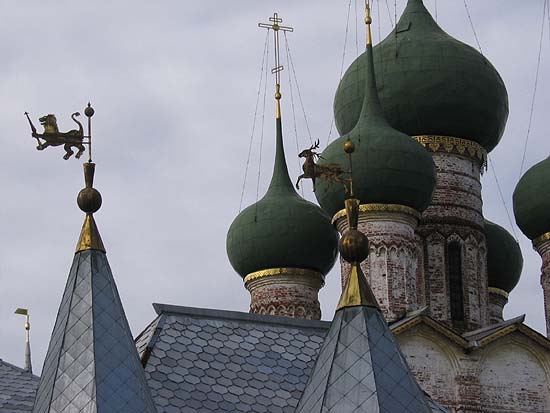
We arrived to Veliki Rostov on the North in the period of the white nights in order to introduce the computer catalog in the Kremlin. After the destruction of Kiev in the Middle Ages, this little town was the capital of Russia for a while, and in its fortress – at that time, at the beginning of the ’90s made inaccessible by refuse dumps and deep puddles – there are seven brilliant cathedrals standing, all of them museums now. We worked on the computers in a vaulted room of the former bishop’s castle for a week each day until nine or ten o’clock in the night, then we climbed up to the knights’ hall, where the table was already laid with mushroom, zakuski, cranberry, vodka. Enchanting and ingenious toasts went around, and the favorite soldier’s song of my grandfather from WWI, “There come the Russians with a hundred thousand people” made an absolute hit. Around two o’clock we set out to visit the ruined abbey along the river, and Sergey explained the Finno-Ugric origin of the place-names of the region all the way long.
On the Yaroslavl market there was no cat in that week. Finally Grisha and Zhena offered the one they had left only so that there would be someone to suck the milk of the mother cat. She did not even fulfill her first month. To the veterinarian one had to cross the upper stream of the Volga, the river washed the end of his garden. “Put her in your pocket”, he said. “Until I get the passport for her, she will kitten herself.”
“What names do they usually give to cats here?” Lena did not know that the habitual cat’s name “Muska” means “Russian” in old Hungarian. The rest of our Russian friends do not know it either, and when they hear the name, they immediately begin to call her by diminutives like “Musa” and “Musyusa”. But Muska knew what this name obliged her to, and she bore up heroically the six hours long travel by bus to Moscow, through spoiled countrysides and ruined villages, where we did not see one single cultivated garden along three hundred kilometers. She came out every hour, and I fed her from a German nurser bought in a first class pet shop in Yaroslavl, supported by the experiences of my teenager years made with hedgehog kids, young fawns and recently hatched grass snakes. By the time we reached Moscow she adopted me as her matyushka, and I have remained that up to the present day.
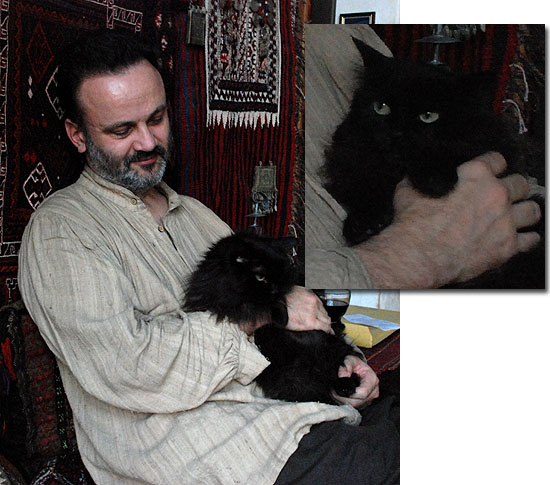
We missed the plane. We were out there in early dawn, two hours before the departure, but the multi-step security control was so long that we were already refused to go to check-in. “I was here already four hours earlier”, the uniformed woman said with full conscience of her importance. “Stay here for a thousand years more”, I said. “Gdye vash nachalnik?” (Where is your boss?)
Russian bureaucracy is human-faced. German bureaucrats hide behind rules to reject you, while the remnants of their human being is filled with a good feeling on having got their everyday human sacrifice again. In Italy, probably due to the Roman law that had pervaded their blood, you can squeeze out of them any rational request with reference to the rights due to every person, of course only if you speak Italian, for this is what makes you a person in the sense of the same Roman law. I have already convinced with irrefutable arguments the director of the head post office in Rome to go to the office on Easter Monday and to give me out my money that had arrived on Good Friday. In Russia, however, you speak with them as a Christian with a Christian, like someone who came to beg for a little salt, and if you ask it decently then they will certainly give you, even if they have to borrow it from someone else. Russian bureaucrats, to my experience, always borrow from someone else, but the permanent overstepping of their authority absolutely does not bother either them or their clients, or even their superiors to whom it is worth to have recourse in dubious cases.
So, along the pearl string of gdye vash nachalnik, (“where’s your boss?”) we finally arrived to the chief commander of the airport who was touched by the complaint of a Westerner in Russian language – at the beginning of the ’90s this was still a cure for many wounds –, and while he was scribbling something on our ticket, he told that we can leave with the afternoon charter flight.
That flight was not displayed anywhere, but everyone nodded eagerly at the sight of the ticket. However, at the gate several brawny chaps blocked the way with hand detectors. We circulated nervously up and down the airport, in devout prayers. We knew that if they found Musa, they made short work of her. Finally we were called by name, so that we could not but go. However, at the gate, in the place of the mountains of muscle there was only the stewardess waiting for us, wringing her hands. “Hurry on, we are late.”
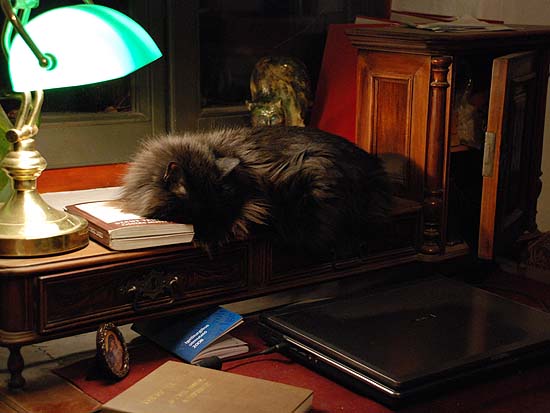
The front part of the tiny little plane was filled with silent Chinese businessmen, while the back part with drunken Russian businessmen, and we were put in the puffer zone between both. The latter – I’m sorry for the stereotyped image, but it was like this in fact – brought several cases of excellent vodka on the border, and the whole staff of the plane made frequent raids on them, perhaps except for the pilot, but it is also possible that he was taken of it in his cabin. In the meantime Muska came out as well, perhaps to say farewell to matyushka Rossiya. The Chinese greeted her in an ecstasy of delight. Only later we saw in the Chinese TV that at that time it was still so unusual to keep pets in China that in the second half of the ’90s the CCTV4 broadcasted daily educational films for rich Chinese on how to caress cats.
By the time we got to the airport of Budapest, the back section reached such a volume that even the Hungarian passport controllers came out from their cabins. “Ah, are you that?” they relaxed. “Go, go.” – and they entered the country by skipping the passport control. My red-skinned passport was controlled in spite of my Russian face, perhaps because I was suspiciously sober. The controllers were also a bit surprised what we had been doing in that plane, but nevertheless they let us in to our homeland without much fuss.
In this moment Muska was seized with disquiet. Until then she slept under the pullover of Kata, so she was politely let through everywhere as a pregnant mother. Now, however, she crept from her belly to her back, and then she started to climb up, and by when we arrived to the customs, she almost came forward by meowing her own death warrant. Perhaps the customs officer even noticed her sticking out the head from the neck of Kata, but he probably considered impossible what he saw, and kept sitting with poker face as we passed by. Then Musa abruptly plopped back, gathering strength to jump in the taxi driver’s neck from the back seat later.
When at home we let her out in the garden for the first time, she hesitated for a moment, and then all of a sudden run up on the forty meters high poplar tree.
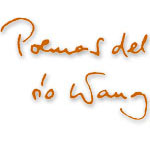




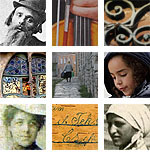
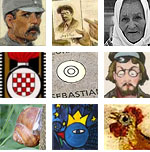
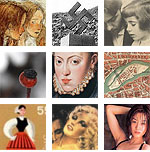
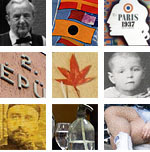
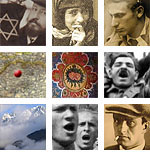

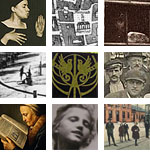
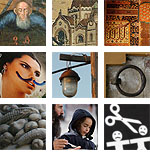
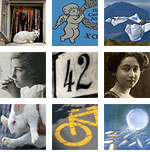
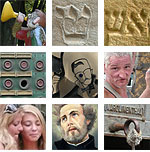
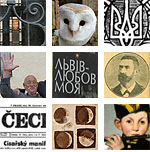
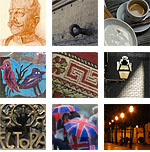
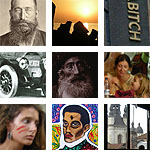
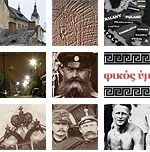
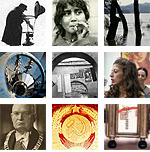
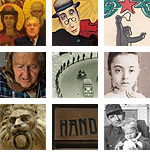
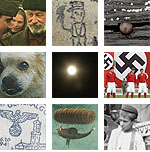
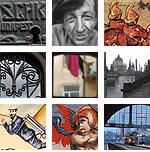
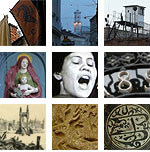
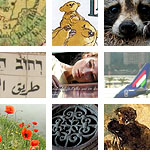
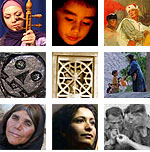
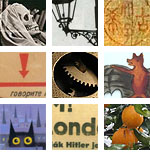
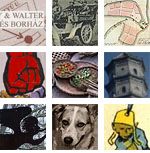
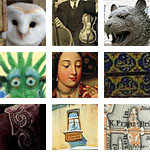
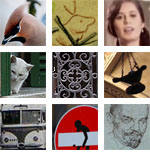
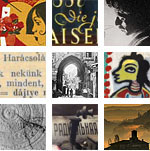
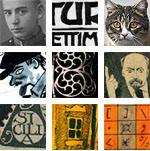

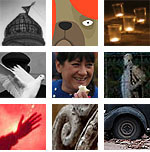
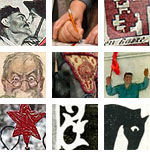
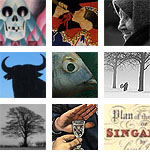
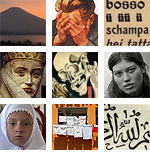
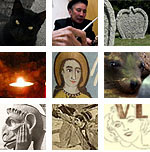
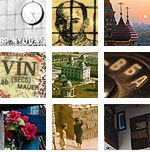
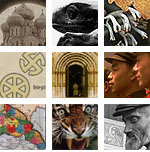
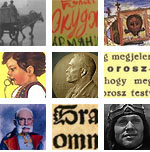
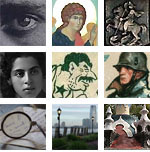
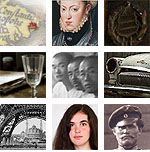
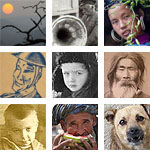
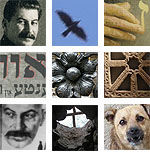
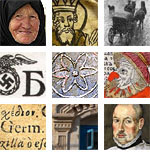
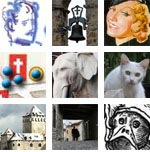
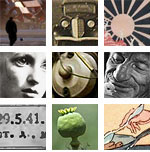
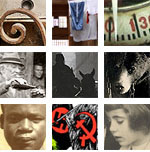
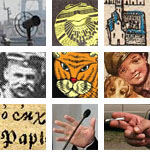
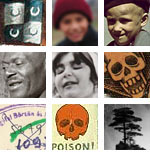
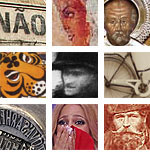
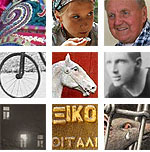
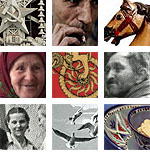
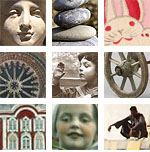


4 comentarios:
Fantástica historia y preciosa la gata.
Nosotros hace unos meses que tenemos a Chernuska, totalmente porteña ('de Buenos Aires') pero rescatada de la calle por la novia rusa de mi hermano y su hijito. Ellos en realidad la llaman "Negrita" pero nosotros, por gusto a lo exótico, la bautizamos en ruso (con su anuencia, por supuesto) al tomarla en guarda mientras ellos están en San Petersburgo. De todas formas, los que siempre tuvimos gatos, sabemos que a ellos poco les importa con qué nombre los llamamos; a no ser que, por una enorme capacidad intuitiva o precisión fortuita, encontremos el nombre exacto que ellos mismos consideran propio...
Solo dejar sentado el origen de mi creencia sobre nombres felinos. La incontrovertible fuente de T.S. Eliot, claro.
¡Y no molesto más!
THE NAMING OF CATS
The Naming of Cats is a difficult matter,
It isn't just one of your holiday games;
You may think at first I'm as mad as a hatter
When I tell you, a cat must have THREE DIFFERENT NAMES.
First of all, there's the name that the family use daily,
Such as Peter, Augustus, Alonzo or James,
Such as Victor or Jonathan, or George or Bill Bailey -
All of them sensible everyday names.
There are fancier names if you think they sound sweeter,
Some for the gentlemen, some for the dames:
Such as Plato, Admetus, Electra, Demeter -
But all of them sensible everyday names.
But I tell you, a cat needs a name that's particular,
A name that's peculiar, and more dignified,
Else how can he keep up his tail perpendicular,
Or spread out his whiskers, or cherish his pride?
Of names of this kind, I can give you a quorum,
Such as Munkustrap, Quaxo, or Coricopat,
Such as Bombalurina, or else Jellylorum -
Names that never belong to more than one cat.
But above and beyond there's still one name left over,
And that is the name that you never will guess;
The name that no human research can discover -
But THE CAT HIMSELF KNOWS, and will never confess.
When you notice a cat in profound meditation,
The reason, I tell you, is always the same:
His mind is engaged in a rapt contemplation
Of the thought, of the thought, of the thought of his name:
His ineffable effable
Effanineffable
Deep and inscrutable singular Name.
Gatos rusos del mundo, ¡uníos! (y producid preciosos gatitos). Un caluroso y combativo saludo compañero a Chernushka de Muska.
A Muska parece que le importa que la callamos con su nombre, porque siempre lo honra con un pequeño gruñido.
(En este momento me llega tu segundo comentario con el tractado de Eliot, y sí, absolutamente tiene razón. Sólo tenía que cambiar el verso "there's the name that the family use daily" a "there's the name authorized by Her/His Majesty to everyday and familiar use", sería más preciso así.
Ma qué "no molesto más"? ¡Mas si aún no has nunca molestado!
Y muchas felicidades al cumpleaño, aunque con tantas semanas de retraso. Sí que el primero de agosto entrerá con letras rojas en la historia de Studiolum por más de una razón.
Only to say that she is such a beauty !!!!
Publicar un comentario